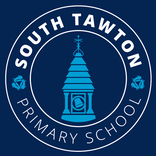Meet the Safeguarding Team
Barbara Manning
Trust Safeguarding Lead
Trust Safeguarding Lead
Designated and Deputy Designated Safeguarding Leads
|
Emma Goodwin
Designated Safeguarding Lead Principal South Tawton Primary School |
Here at South Tawton Primary School, we take our duty of care responsibility very seriously. All adults in the school receive training in Child Protection/Safeguarding and receive refresher updates in meetings throughout the year.
The school’s designated child protection officer is Mrs Sarah Marvin and the deputy designated leads are Mrs Shirley Culverhouse and Miss Peggy Chalcraft.
If you are concerned about a child outside of term time, please email [email protected]
Our Child Protection Policy clearly sets out how we deal with concerns as a school.
South Tawton Safeguarding and Child Protection Policy local version 2023 2024
Keeping Children Safe in Education 2023
Please follow the links below to the Dartmoor Multi Academy Trust Safeguarding Policies
Dartmoor MAT Child Protection and Safeguarding Policy
Child Protection and Safeguarding Policy Addendum
If school staff are significantly concerned about an incident (or a build up of incidents over time), we might make a referral to MASH (Multi-Agency Safeguarding Hub) for specialist advice.
If you are in any doubt about the safety of a child, immediately tell a teacher, Mrs Marvin, Mrs Culverhouse or Miss Chalcraft. If it is an evening, weekend or holiday it is possible to report a concern of your own to MASH (Multi-Agency Safeguarding Hub). Call 0345 155 1071 and give as much information as you can or email Mrs Goodwin [email protected]
The MASH is the central resource for the Devon local Authority area receiving all serious safeguarding and child protection enquiries. The MASH is staffed with professionals from a range of agencies including police, probation, fire, ambulance, health, education and social care. These professionals share information to ensure early identification of potential significant harm, and trigger interventions to prevent further harm to children.
More information about safeguarding in Devon can be found at:
http://www.devonsafeguardingchildren.org
More information about Child Protection nationally, can be accessed at:
https://www.nspcc.org.uk/preventing-abuse/child-protection-system
EARLY-HELP-LEAFLET.PDF
HOME-ALONE-GUIDE-KEEPING-CHILD-SAFE.PDF
PANTS.PDF
Internet Safety Day
Throughout the year, all staff promote the safe, responsible and positive use of digital technology through the school curriculum, assemblies and school displays. The UK Safer Internet Centre – a partnership of three leading charities; Childnet, the South West Grid for Learning and the Internet Watch Foundation – provide resources for children, schools and families, and tools for getting involved at www.saferinternetday.org.uk.
This a very important message to share with our young people and as technology changes and develops it is important that we keep up to date with the best ways to keep our children safe.
If you have questions to ask or would like us to share more information about internet safety or any other safeguarding matters, please do not hesitate to let us know.
Our E-safety Policy can be found here.
Online Safety
The internet is incredible and opens up a whole world of exciting possibilities for both children and adults. But as adults, how do we keep track of what children are accessing and how do we make sure they’re staying safe?
E-Safety is an important part of keeping the children safe therefore E-Safety is taught to all pupils to show them how to stay safe online. We have security measures in place in school to help safeguard pupils from potential dangers or unsuitable material.
The best way to children safe online is for our school to work with parents to ensure the e-Safety message is consistent. It is important that parents speak to their children about how they can keep safe and behave appropriately online.
Help for parents and carers
There are lots of websites which can show you how to keep your child(ren) safe.
Innocent searches online can lead to not so innocent results. But parental controls can help keep your child safe. The NSPCC website has step by step instructions for setting up parental controls. Click here to access the NSPCC site
Has someone done something online that has made you or a child or young person you know, feel worried or unsafe?
The Child Exploitation and Online Protection Centre CEOP delivers a multi-agency service dedicated to tackling the abuse and exploitation of children in the real and ‘e’ world. Often it is referred to as an online 999.
Kidsmart has some clear rules for keeping children safe when they are online and lots of other tips for adults and children.
https://www.childnet.com/resources/supporting-young-people-online
Child Sexual Exploitation (CSE) Parents Against Child Sexual Exploitation (PACE) are the leading national charity working with parents and carers of sexually exploited children. It is important that all parents have an understanding of child sexual exploitation (CSE) and this site helps to explain what child sexual exploitation is, whilst providing support for parents who think their child is being exploited.
When you enter the site then click on the link for parents for advice on how to talk to your child
http://paceuk.info
The school’s designated child protection officer is Mrs Sarah Marvin and the deputy designated leads are Mrs Shirley Culverhouse and Miss Peggy Chalcraft.
If you are concerned about a child outside of term time, please email [email protected]
Our Child Protection Policy clearly sets out how we deal with concerns as a school.
South Tawton Safeguarding and Child Protection Policy local version 2023 2024
Keeping Children Safe in Education 2023
Please follow the links below to the Dartmoor Multi Academy Trust Safeguarding Policies
Dartmoor MAT Child Protection and Safeguarding Policy
Child Protection and Safeguarding Policy Addendum
If school staff are significantly concerned about an incident (or a build up of incidents over time), we might make a referral to MASH (Multi-Agency Safeguarding Hub) for specialist advice.
If you are in any doubt about the safety of a child, immediately tell a teacher, Mrs Marvin, Mrs Culverhouse or Miss Chalcraft. If it is an evening, weekend or holiday it is possible to report a concern of your own to MASH (Multi-Agency Safeguarding Hub). Call 0345 155 1071 and give as much information as you can or email Mrs Goodwin [email protected]
The MASH is the central resource for the Devon local Authority area receiving all serious safeguarding and child protection enquiries. The MASH is staffed with professionals from a range of agencies including police, probation, fire, ambulance, health, education and social care. These professionals share information to ensure early identification of potential significant harm, and trigger interventions to prevent further harm to children.
More information about safeguarding in Devon can be found at:
http://www.devonsafeguardingchildren.org
More information about Child Protection nationally, can be accessed at:
https://www.nspcc.org.uk/preventing-abuse/child-protection-system
EARLY-HELP-LEAFLET.PDF
HOME-ALONE-GUIDE-KEEPING-CHILD-SAFE.PDF
PANTS.PDF
Internet Safety Day
Throughout the year, all staff promote the safe, responsible and positive use of digital technology through the school curriculum, assemblies and school displays. The UK Safer Internet Centre – a partnership of three leading charities; Childnet, the South West Grid for Learning and the Internet Watch Foundation – provide resources for children, schools and families, and tools for getting involved at www.saferinternetday.org.uk.
This a very important message to share with our young people and as technology changes and develops it is important that we keep up to date with the best ways to keep our children safe.
If you have questions to ask or would like us to share more information about internet safety or any other safeguarding matters, please do not hesitate to let us know.
Our E-safety Policy can be found here.
Online Safety
The internet is incredible and opens up a whole world of exciting possibilities for both children and adults. But as adults, how do we keep track of what children are accessing and how do we make sure they’re staying safe?
E-Safety is an important part of keeping the children safe therefore E-Safety is taught to all pupils to show them how to stay safe online. We have security measures in place in school to help safeguard pupils from potential dangers or unsuitable material.
The best way to children safe online is for our school to work with parents to ensure the e-Safety message is consistent. It is important that parents speak to their children about how they can keep safe and behave appropriately online.
Help for parents and carers
There are lots of websites which can show you how to keep your child(ren) safe.
Innocent searches online can lead to not so innocent results. But parental controls can help keep your child safe. The NSPCC website has step by step instructions for setting up parental controls. Click here to access the NSPCC site
Has someone done something online that has made you or a child or young person you know, feel worried or unsafe?
The Child Exploitation and Online Protection Centre CEOP delivers a multi-agency service dedicated to tackling the abuse and exploitation of children in the real and ‘e’ world. Often it is referred to as an online 999.
Kidsmart has some clear rules for keeping children safe when they are online and lots of other tips for adults and children.
https://www.childnet.com/resources/supporting-young-people-online
Child Sexual Exploitation (CSE) Parents Against Child Sexual Exploitation (PACE) are the leading national charity working with parents and carers of sexually exploited children. It is important that all parents have an understanding of child sexual exploitation (CSE) and this site helps to explain what child sexual exploitation is, whilst providing support for parents who think their child is being exploited.
When you enter the site then click on the link for parents for advice on how to talk to your child
http://paceuk.info
The RHC button is an asset of SWGfL, a charity working internationally to ensure all benefit from technology, free from harm.
The button has been developed to offer anyone living in the UK a simple and convenient mechanism for gaining access to reporting routes for commonly used social networking sites, gaming platforms, apps and streaming services alongside trusted online safety advice, help and support. It also provides access to an online mechanism for reporting online harm to the RHC service for those over the age of 13 where an intial report has been made to industry but no action has been taken. RHC will review content in line with a sites' community standards and act in a mediatory capacity where content goes against these.
Children under 13 years of age are encouraged to tell an adult that they trust about what has happened and to ask for their help in reporting this going through our how we can help resource together.
RHC also have advice and links to reporting routes for other online harms people may come across or face, such as impersonation, privacy violations and intimate image abuse.
The RHC button provides a gateway to the RHC reporting pages, an area of the RHC website offering:
Reports can be made to RHC by anyone over the age of 13. SWGfL operates 3 helplines and to be sure you're getting the right support take a look at the Helpline flowchart to find out who can best support you.
The button has been developed to offer anyone living in the UK a simple and convenient mechanism for gaining access to reporting routes for commonly used social networking sites, gaming platforms, apps and streaming services alongside trusted online safety advice, help and support. It also provides access to an online mechanism for reporting online harm to the RHC service for those over the age of 13 where an intial report has been made to industry but no action has been taken. RHC will review content in line with a sites' community standards and act in a mediatory capacity where content goes against these.
Children under 13 years of age are encouraged to tell an adult that they trust about what has happened and to ask for their help in reporting this going through our how we can help resource together.
RHC also have advice and links to reporting routes for other online harms people may come across or face, such as impersonation, privacy violations and intimate image abuse.
The RHC button provides a gateway to the RHC reporting pages, an area of the RHC website offering:
- links to reporting routes on commonly used sites for 8 types of online harm
- help, advice and support on what to do if experiencing or witnessing harm online
- signposting to industry partners reporting forms and the ability to reportlegal but harmful content directly to RHC for further investigation
Reports can be made to RHC by anyone over the age of 13. SWGfL operates 3 helplines and to be sure you're getting the right support take a look at the Helpline flowchart to find out who can best support you.








